Curtis Shuler Jr. Case Is Beyond A Reasonable Doubt: How Can A Man Serve Life Without Parole For A Crime In Which He Was Acquitted
Posted by David Adams on May 31st, 2012
The entire world is aware of the injustice that occurred in the Rueben “Hurricane” Carter case that sent the former Champion Boxer to state prison for nearly 2 decades for a murder it was later determined he did not commit, the Mumia Abu-Jamal conviction for killing a Philadelphia Police Officer in the early 80’s is a case for reasonable doubt that he ever even killed anyone, and the story of Troy Davis who was put to death for murdering a Police Officer by the state of Georgia in a case which many also believed he to was innocent. These are just a few of the more well-known cases of injustice in our country. Time and time again we find criminal cases within the American Justice System that seemingly fail African-Americans and other people of color as a standard operating procedure when interpreting the laws of the land. Unfortunately, we see here in America that many state criminal cases blatantly railroad black people in criminal courts, show a distinct disparity in cases that their white counterparts are similarly situated by having lesser sentences handed out, and in the slightest appearance of guilt by blacks routinely result in defendants being sentenced to the maximum under the law. This of course is if the defendant has actually been convicted of the charges that the state has brought against them. You would think that any criminal case where the defendant has in fact been acquitted of felony murder charges, that life in prison would be the most unlikely result of his case, right? No, wrong! Now here comes the case of Curtis Shuler Jr., a man now serving life without the possibility of parole in a Florida State prison for murder. Some how the jury was able to find him guilty on a lesser count of attempted burglary all along while acquitting him of the felony murder count. In fact the sworn Jury Foreman even read this statement at his trial:
“We, the jury, find as follows as to Count 2 of the charges. The defendant is guilty of attempted burglary, a lesser-included offense to that charged in the indictment, and we further find that the defendant did not carry, display, or use a firearm, and we further find that the defendant did not make an assault or battery on Larry Steven Tyler or John Steven Green.”
Shuler was charged with Premeditated First Degree Murder on a victim that a ‘sworn’ jury ‘Acquitted Him’ of. The jury never found him guilty of killing the victim. In fact the jury acquitted him of ‘essentially every element’ that constitute the crime Of premeditated murder. Yet instead of following state and federal laws when it comes to legally inconsistent verdicts the prosecutor persuaded the judge to find him guilty as charged and the court adjudicated him guilty despite the judge’s confusion as to the verdict. Federal and state law requires that verdicts rendered like this ‘require acquittal” . Instead, Shuler was sentenced to a life sentence without benefit of parole for a murder he was never convicted of doing. He was wrongfully convicted and railroaded by the state. This particular case is important for several reasons. First, it highlights the unjust and unethical application of the felony murder rule. Approximately half of the states in America allow a person to be convicted of first degree murder, even if the jury believes the person did not commit the act of murder. This is possible because in many states if a person is charged with murder and another felony, such as aggravated assault or burglary, the jury only need find the person guilty of the lesser felony offense for the individual to receive an egregious sentence, such as life without parole. However, the manner in which the state of Florida adjudicated the Shuler case is contradictory not only to precedent, but the state’s statue for a charge of this nature, and many within the legal community have expressed the point that Shuler’s case should have been a mistrial at the very maximum. The argument is simple. How can a man be found guilty of a lesser charge in a carjacking, murder, robbery case, and be found innocent of the more serious charges. As precedent in the State of Florida as well as other states in this country, defendants acting in harmony during the commission of a felony are charged along with the actual perpetrators. The confusion comes when the jury seemingly agrees that Shuler was there during the crime and participated (i.e. attempted burglary) The jury acquitted Shuler on the more serious charges, but found him guilty on a lesser charge, which is something the court was restrained on during the sentencing phase of the Shuler case. The jury did not believe that Curtis committed the murder. Instead, the jury found him guilty on the lesser charge of burglary. The problem was that under the felony murder rule if a person is found guilty for the additional felony charge, they are penalized for murder component of the charges as well. The charges go hand in hand, but the jury’s findings were improperly adjudicated or the jury instructions were not explicit at the very least. The jury can not find defendants in Capitol Murder cases guilty only of lessor charges in the state of Florida when the defendant acted in harmony with others during a crime of premeditated murder. This confusion should have been clarified by the sitting Judge of the case. Instead of following precedent and state law, the judge was coerced by the prosecutor to hand down a maximum sentence of life without parole. I am wondering why this jury found Curtis innocent of murder, but found that he was there during the commission of an attempted burglary, that ultimately led to Capitol Murder. What’s equally troubling about the Curtis Shuler case is that he judge sentenced him to life without the possibility of parole even with a sworn jury’s verdict clearing him of murder, a rare finding when we consider the fact that all parties involved in heinous criminal acts of this nature generally are found guilty of the more serious crimes as well. Why didn’t the judge query the jury about their findings. In fact I am not even sure if the Court can rule as it did, which is clearly an egregious abuse of the court’s sentencing discretion. This case is textbook for depicting the unfair manner in which criminal cases against blacks are often meted out in the American Criminal Justice System. I will be conducting further investigations into the Curtis Shuler Jr. story to aid in exposing this bizarre case which hopefully help gain his freedom. Curtis has written two books since his incarceration: “I Became Another Man” and “Never Has A Road Been So Dark”. The books can be purchased on Amazon.com. Please support Curtis and his family as he is in desperate need of funding for his legal representation. Meanwhile ‘ll continue you to research his case, and bring more publicity to this interesting story.
The People’s Champion
I’m David Adams
A Self proclaimed geek, Sympathizer for the homeless, Social Change Advocate, Crime Blogger, Promoter of Awareness for Missing and Exploited Children, and a mobile technology enthusiast. A recognized Journalist and Human Interest Writer championing the plight of the masses whom are without a voice of their own.
More Posts - Website
Follow Me:




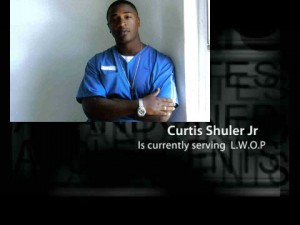
The entire world is aware of the injustice that occurred in the Rueben “Hurricane” Carter case that sent the former Champion Boxer to state prison for nearly 2 decades for a murder it was later determined he did not commit, the Mumia Abu-Jamal conviction for killing a Philadelphia Police Officer in the early 80’s is a case for reasonable doubt that he ever even killed anyone, and the story of Troy Davis who was put to death for murdering a Police Officer by the state of Georgia in a case which many also believed he to was innocent. These are just a few of the more well-known cases of injustice in our country. Time and time again we find criminal cases within the American Justice System that seemingly fail African-Americans and other people of color as a standard operating procedure when interpreting the laws of the land. Unfortunately, we see here in America that many state criminal cases blatantly railroad black people in criminal courts, show a distinct disparity in cases that their white counterparts are similarly situated by having lesser sentences handed out, and in the slightest appearance of guilt by blacks routinely result in defendants being sentenced to the maximum under the law. This of course is if the defendant has actually been convicted of the charges that the state has brought against them. You would think that any criminal case where the defendant has in fact been acquitted of felony murder charges, that life in prison would be the most unlikely result of his case, right? No, wrong! Now here comes the case of Curtis Shuler Jr., a man now serving life without the possibility of parole in a Florida State prison for murder. Some how the jury was able to find him guilty on a lesser count of attempted burglary all along while acquitting him of the felony murder count. In fact the sworn Jury Foreman even read this statement at his trial:
“We, the jury, find as follows as to Count 2 of the charges. The defendant is guilty of attempted burglary, a lesser-included offense to that charged in the indictment, and we further find that the defendant did not carry, display, or use a firearm, and we further find that the defendant did not make an assault or battery on Larry Steven Tyler or John Steven Green.”
Shuler was charged with Premeditated First Degree Murder on a victim that a ‘sworn’ jury ‘Acquitted Him’ of. The jury never found him guilty of killing the victim. In fact the jury acquitted him of ‘essentially every element’ that constitute the crime Of premeditated murder. Yet instead of following state and federal laws when it comes to legally inconsistent verdicts the prosecutor persuaded the judge to find him guilty as charged and the court adjudicated him guilty despite the judge’s confusion as to the verdict. Federal and state law requires that verdicts rendered like this ‘require acquittal” . Instead, Shuler was sentenced to a life sentence without benefit of parole for a murder he was never convicted of doing. He was wrongfully convicted and railroaded by the state. This particular case is important for several reasons. First, it highlights the unjust and unethical application of the felony murder rule. Approximately half of the states in America allow a person to be convicted of first degree murder, even if the jury believes the person did not commit the act of murder. This is possible because in many states if a person is charged with murder and another felony, such as aggravated assault or burglary, the jury only need find the person guilty of the lesser felony offense for the individual to receive an egregious sentence, such as life without parole. However, the manner in which the state of Florida adjudicated the Shuler case is contradictory not only to precedent, but the state’s statue for a charge of this nature, and many within the legal community have expressed the point that Shuler’s case should have been a mistrial at the very maximum. The argument is simple. How can a man be found guilty of a lesser charge in a carjacking, murder, robbery case, and be found innocent of the more serious charges. As precedent in the State of Florida as well as other states in this country, defendants acting in harmony during the commission of a felony are charged along with the actual perpetrators. The confusion comes when the jury seemingly agrees that Shuler was there during the crime and participated (i.e. attempted burglary) The jury acquitted Shuler on the more serious charges, but found him guilty on a lesser charge, which is something the court was restrained on during the sentencing phase of the Shuler case. The jury did not believe that Curtis committed the murder. Instead, the jury found him guilty on the lesser charge of burglary. The problem was that under the felony murder rule if a person is found guilty for the additional felony charge, they are penalized for murder component of the charges as well. The charges go hand in hand, but the jury’s findings were improperly adjudicated or the jury instructions were not explicit at the very least. The jury can not find defendants in Capitol Murder cases guilty only of lessor charges in the state of Florida when the defendant acted in harmony with others during a crime of premeditated murder. This confusion should have been clarified by the sitting Judge of the case. Instead of following precedent and state law, the judge was coerced by the prosecutor to hand down a maximum sentence of life without parole. I am wondering why this jury found Curtis innocent of murder, but found that he was there during the commission of an attempted burglary, that ultimately led to Capitol Murder. What’s equally troubling about the Curtis Shuler case is that he judge sentenced him to life without the possibility of parole even with a sworn jury’s verdict clearing him of murder, a rare finding when we consider the fact that all parties involved in heinous criminal acts of this nature generally are found guilty of the more serious crimes as well. Why didn’t the judge query the jury about their findings. In fact I am not even sure if the Court can rule as it did, which is clearly an egregious abuse of the court’s sentencing discretion. This case is textbook for depicting the unfair manner in which criminal cases against blacks are often meted out in the American Criminal Justice System. I will be conducting further investigations into the Curtis Shuler Jr. story to aid in exposing this bizarre case which hopefully help gain his freedom. Curtis has written two books since his incarceration: “I Became Another Man” and “Never Has A Road Been So Dark”. The books can be purchased on Amazon.com. Please support Curtis and his family as he is in desperate need of funding for his legal representation. Meanwhile ‘ll continue you to research his case, and bring more publicity to this interesting story.
The People’s Champion
I’m David Adams
A Self proclaimed geek, Sympathizer for the homeless, Social Change Advocate, Crime Blogger, Promoter of Awareness for Missing and Exploited Children, and a mobile technology enthusiast. A recognized Journalist and Human Interest Writer championing the plight of the masses whom are without a voice of their own.
More Posts - Website
Follow Me:




You can
leave a response, or
trackback from your own site.

 RSS Feed
RSS Feed Twitter
Twitter




 Posted in
Posted in 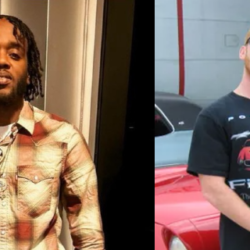


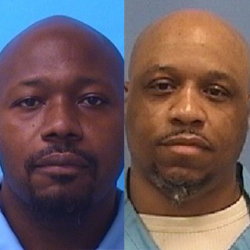
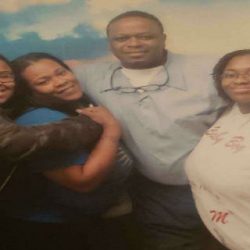

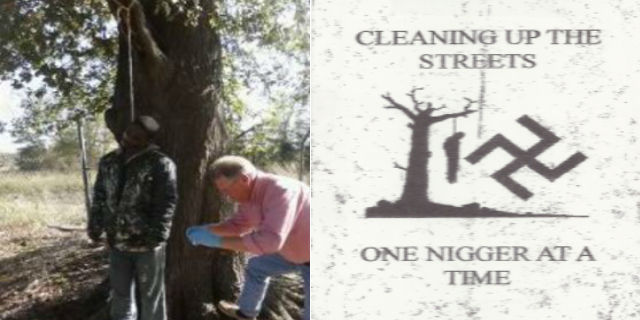

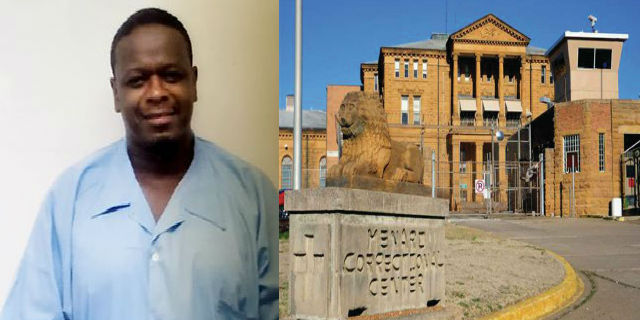




Sari Hovey
I found a great…
How do you make the navbar in blogger come back?
Hi! This is kind of off topic but I need some help from an established blog.
Is it very difficult to set up your own blog? I’m not very techincal but I can figure things out pretty quick.
I’m thinking about creating my own but I’m not sure where to start.
Do you have any points or suggestions? Appreciate it
It’s hard to find educated folks on this subject, but you sound like you know what you’re speaking about! Thanks
498716 611114A genuinely exciting examine, I could possibly not concur entirely, but you do make some genuinely legitimate points. 111622